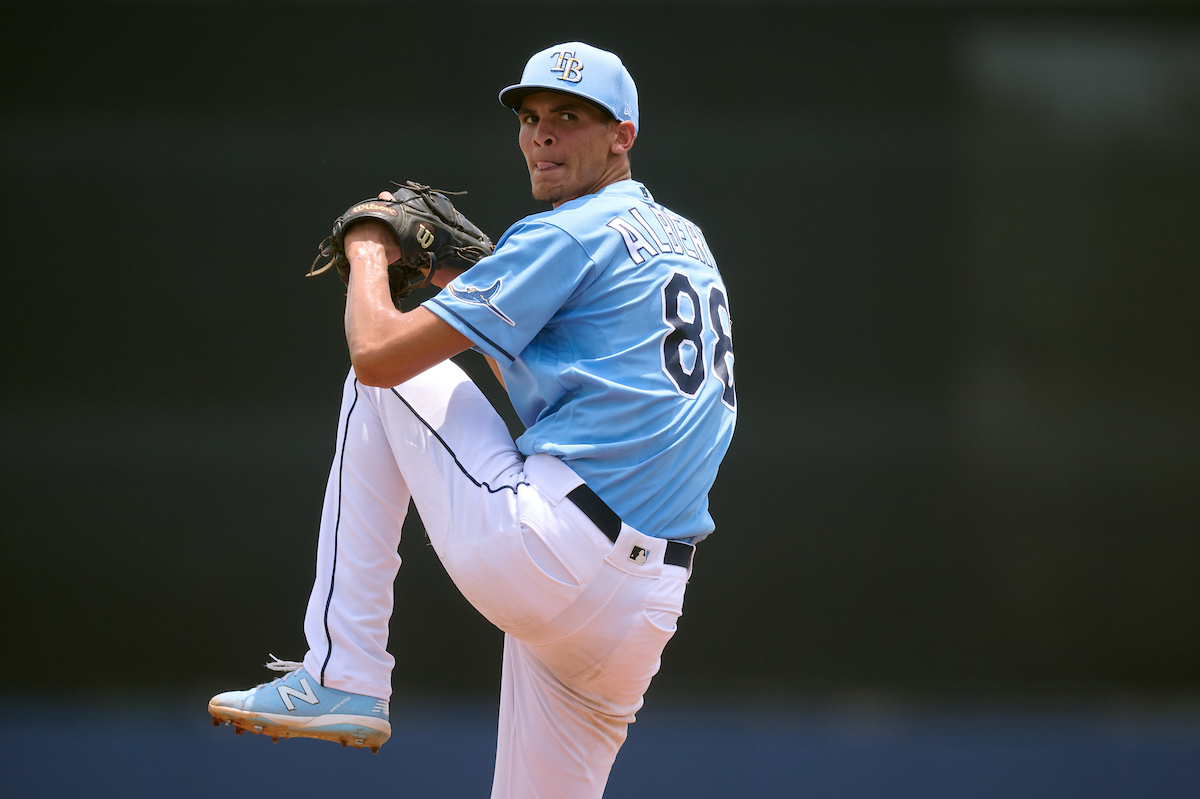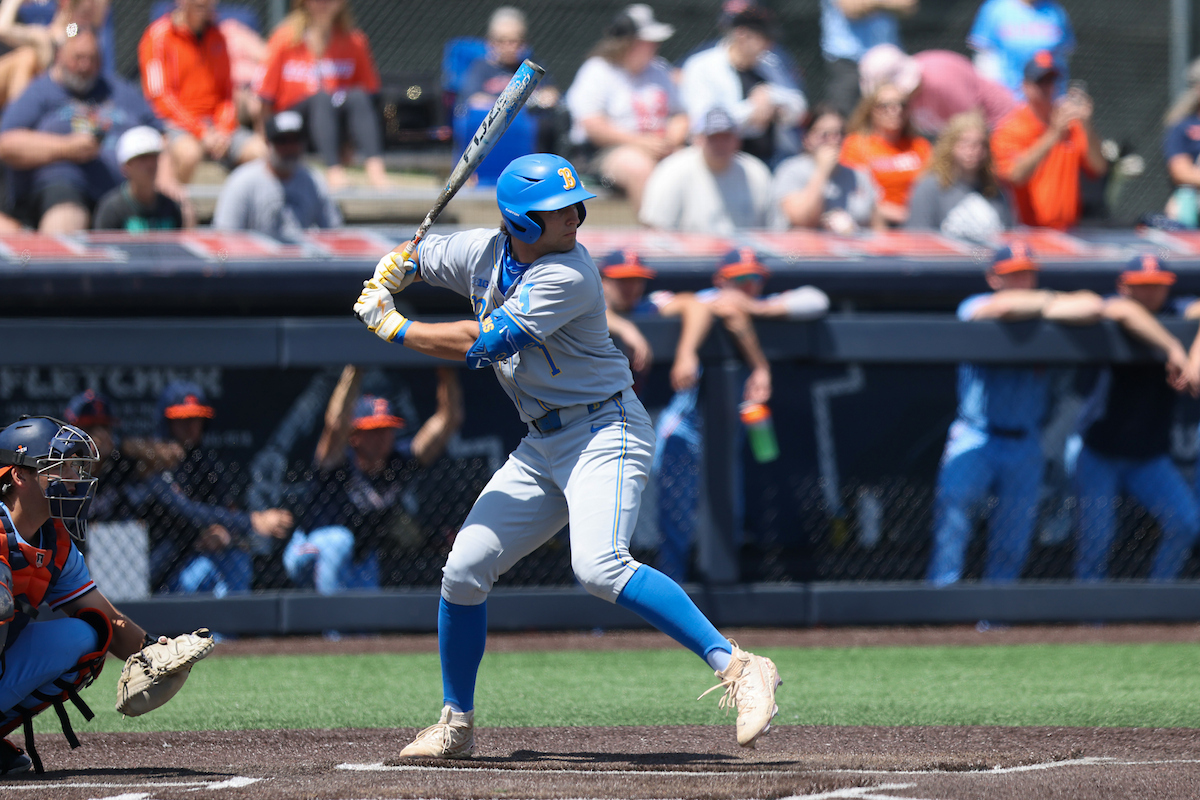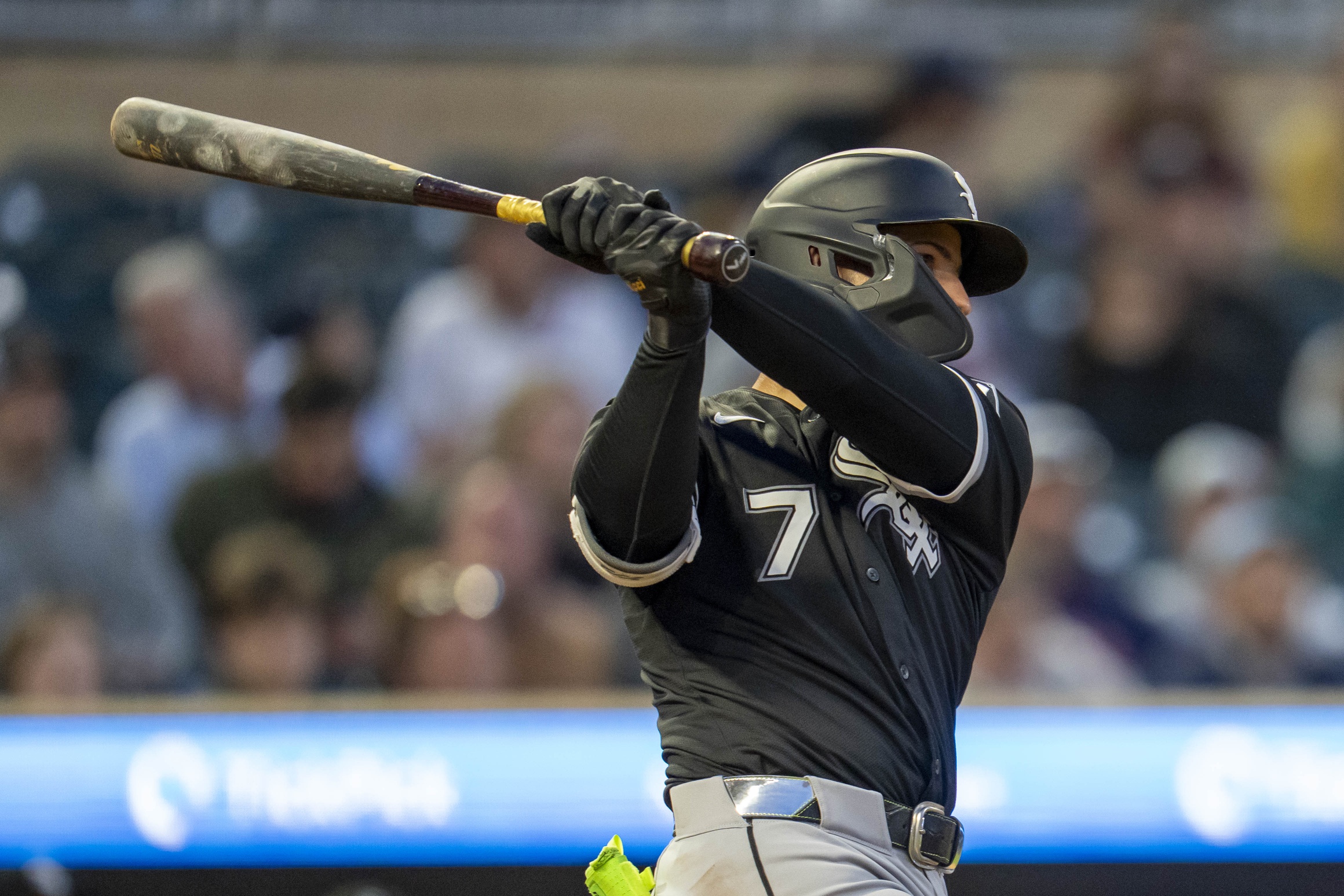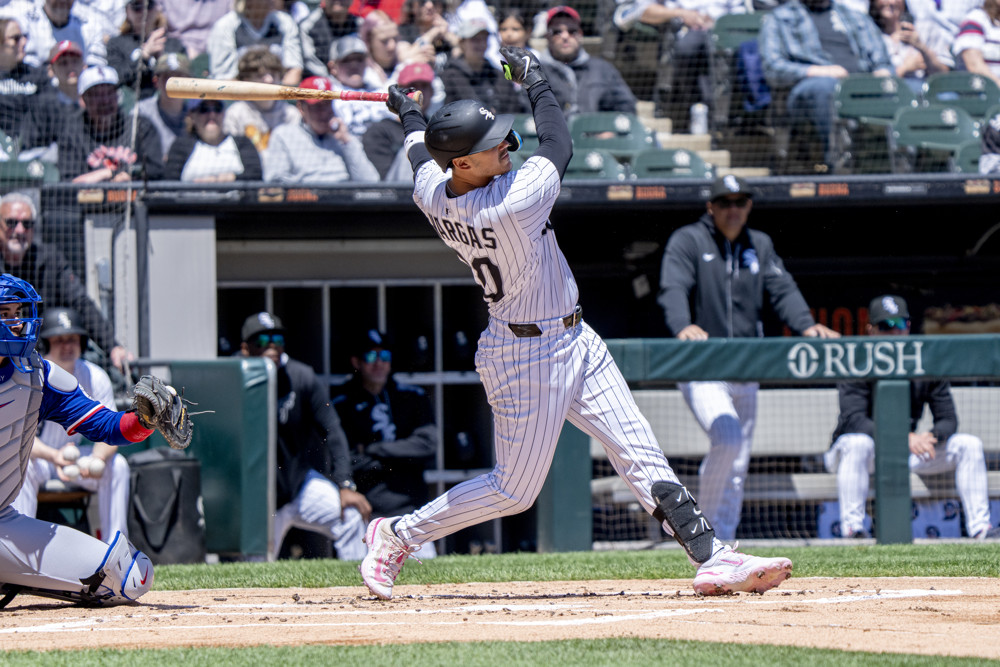Walt Dropo, White Sox first baseman from 1955-1958, died Friday night at the age of 87.
Dropo is known mostly for his work before joining the Sox. He broke out in Boston, winning the 1950 Rookie of the Year Award for leading the league with 144 RBI while hitting .322/.378/.583. He never quite matched that production, but he had some good years afterward.
His next stop was Detroit, where he tied a major-league record with 12 consecutive hits in 1952. He's the only player to do so without a walk.
Dropo's production tailed off in his last two seasons in Detroit, which allowed Frank Lane to get Dropo for Ferris Fain (an OBP machine with little power) and two minor leaguers.
Lane hoped Dropo would provide the power the 50s Sox sorely lacked. His best days were behind him, but Dropo did lead the 1955 Sox in homers ... with 19.
The strange thing about Dropo is that Comiskey Park didn't kill his power. In fact, he hit way better at the old digs than he did away from it. Adding up his three full seasons:
- Home: .299/.358/.477
- Away: .238/.300/.360
Oddly enough, Sherm Lollar also hit better at Comiskey in all three of those seasons, though not with such a great disparity. The same goes for Larry Doby in his big power year of 1956, although he would hit 11 of his 14 homers on the road the following year.
That 1956 is an outlier, though, in that it's the only time the White Sox 1) had even decent power hitters, and 2) they hit significantly better on the road. I hadn't realized that their best sluggers didn't seem to be affected that much.
Anyway, Dropo played first for some pretty good teams -- the Sox averaged 89 wins in his three full seasons -- before he gave way to Earl Torgeson, and the Sox resumed their habit of having no power at first. Condolences to the Dropo family, especially his grandkids, who sponsor his Baseball-Reference.com page.
Farewell also to legendary Chicago Cub Phil Cavarretta, who died on Saturday at the age of 94. For a very, very brief period in 1955, the two players were Chicago's first basemen. A matter of innings, really.
*****************************
Speaking of the 1950s, Bill James listed his top 33 rotations of all time (subscriber only). The White Sox are represented four times.
The first two don't really qualify as big surprises -- 1905 and 1920. They're a year off from their more famous selves, but the 1905 team only needed six pitchers to throw 1,427 innings, and the 1920 rotation featured four 20-game winners, which sets them apart from their pennant-winning brethren.
The last is 1993, which was a very good year. Four of the five starts (Jack McDowell, Alex Fernandez, Wilson Alvarez and Jason Bere) had ERA+ above 120. McDowell won the Cy Young Award, of course, and James identifies him as "one of the last pitchers to stubbornly burn himself out completing games he didn’t need to complete."
The fourth year is a surprise. I thought 1964 might make it, but I was thinking 10 years too late. James opted for the rotation from 1954, one year before Dropo hit the scene:
| W | L | ERA | G | GS | CG | SHO | SV | IP | ERA+ | |
| Virgil Trucks | 19 | 12 | 2.79 | 40 | 33 | 16 | 5 | 3 | 264.2 | 134 |
| Sandy Consuegra | 16 | 3 | 2.69 | 39 | 17 | 3 | 2 | 3 | 154 | 139 |
| Bob Keegan | 16 | 9 | 3.09 | 31 | 27 | 14 | 2 | 2 | 209.2 | 121 |
| Jack Harshman* | 14 | 8 | 2.95 | 35 | 21 | 9 | 4 | 1 | 177 | 127 |
| Billy Pierce* | 9 | 10 | 3.48 | 36 | 26 | 12 | 4 | 3 | 188.2 | 107 |
| Don Johnson | 8 | 7 | 3.13 | 46 | 16 | 3 | 3 | 7 | 144 | 119 |
I'll provide the commentary for this one:
1) The first team on the list without a Hall of Famer since the Cardinals in ’44.
2) I think Virgil Trucks is the second pitcher to make our list twice, the other being Christy Mathewson.
3) This is a really interesting team. Trucks was a great pitcher with a fascinating career. Consuegra was a Cuban guy who made it to the majors late and didn’t pitch a lot of innings, but pitched at an extremely high level of effectiveness from 1953 to 1955.
Harshman spent years trying to make the majors as a first baseman. He hit 37 homers in the minors in 1947, 40 homers in 1949, and 47 homers in 1951, but didn’t get called up. He switched to pitching, made the majors in months, and had a good major league career, also hit 21 homers in 522 at bats in the majors. On August 13, 1954, he pitched a 16-inning shutout over Detroit, took one day off, and came in on August 15 to pitch two innings in relief.
Billy Pierce, of course, was a near-Hall of Famer who was outstanding in every season from 1951 to 1958 except 1954. Pierce also was a member of a rotation that could be listed here but isn’t, the 1962 Giants, and pitched well enough in ’62 to be one of four pitchers mentioned in the Cy Young voting that year.
Trucks and Pierce I knew about -- the former because the name "Virgil Trucks" demands you know more about him, and the latter because he's Billy Pierce.
The stories of Harshman and Consuegra are new to me, which I actually feel slightly ashamed about since they own White Sox records.
Take a look at that box score from Aug. 13, 1954. According to Tom Tango's basic pitch count estimator, Harshman threw 245 pitches that day. That start earned him the highest game score (109) in White Sox history. When men were men and contracts weren't guaranteed...
Meanwhile, Consuegra owns the highest winning percentage in White Sox history -- at least if you limit it to 15 decisions, which seems like a reasonable number. However, should you want to knock it down a number, the White Sox single-season winning percentage leader is none other than ... 1993 Jason Bere!
We started with Walt Dropo, and ended with Jason Bere. That was a lot of fun. At least for me.
*********************************
Want to know more about Trucks? Of course you do. He's Virgil Trucks.
A few years ago on The Hardball Times, John Brattain (speaking of late, great people) devoted an entire post to Trucks minutiae. He's not that far removed from another record:
Trucks was part of a record that will likely never be broken.Washington's Dean Stone was credited with 1/3 of an inning in the 1954All-Star Game and got the win. Stone never threw a pitch. With theNational League leading 9-8 in the top of the eighth, Stone replaced theWhite Sox's Bob Keegan with two out. The Cardinal's Red Schoendiensttook the opportunity to test Stone and tried to steal home. Stone firedto catcher Yogi Berra, and Schoendienst was out to end the inning. TheAmerican League plated three runs in the bottom of the eighth to takethe lead. Virgil Trucks, replaced Stone in the ninth to finish the game.That left Stone with the win. One win with zero pitches -- now that's arecord that may last forever.
Also, Trucks is the uncle to Butch Trucks, the drummer and a founding member of The Allman Brothers Band.
*********************************
And another thing: All those 1950s names above? They're all outstanding baseball names.





